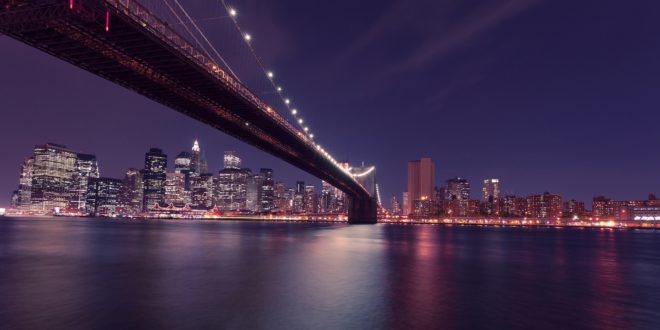by Andrew Light
Confirmation hearings over the past two weeks for Secretary of State nominee Rex Tillerson, Environmental Protection Agency Administrator nominee Scott Pruitt and Secretary of Energy nominee Rick Perry provided an early opportunity to publicly question three members of President Donald Trump’s prospective cabinet who will set the course for the next administration on climate change.
These hearings were all the more important because, before now, Trump offered little more than fragmented mixed messages on climate change. While he backtracked somewhat from his famous 2012 tweet that “climate change was created by and for the Chinese” to hurt American manufacturing, he now says only that he has “an open mind to it,” without explaining what this means.
What did we learn then from these three cabinet nominees about the Trump administration’s plans on these critical issues? Unfortunately, not very much.
Is Climate Change a Hoax?
Tillerson, Pruitt and Perry all provided carefully crafted responses on the extent to which they are convinced on the science of climate change, other than insisting that there is still debate and uncertainty about both the causes and the effects. Tillerson said that he thinks that the effects of climate change are uncertain. Pruitt similarly opined that “the ability to measure with precision the degree and extent of [the impact of human activity on climate change], and what to do about it, are subject to continued debate and dialogue, and well it should be.” For Perry, it was simply that some climate change is man-made and some occurs naturally.
None would say whether there is enough uncertainty to either discount the problem or warrant action. While Pruitt conceded that climate change is not a “hoax”– as implied by Trump’s China tweet – this is, as Brad Plummer pointed out, an extremely low bar to demonstrate any level of commitment to do something about it.
The facts on these issues are well understood: while some climate change is natural, there is effective scientific consensus that the climate change that we are experiencing above and beyond natural cycles is caused by human activity. As the 2013 report of the Intergovernmental Panel on Climate Change (IPCC) affirmed, it is “extremely likely” that over half of observed warming from 1951 to 2010 was due to human activity, and human-caused warming is having an impact on sea-level rise and to the melting of the Greenland ice sheet and glaciers all over the world. It is “virtually certain,” according to the IPCC report, which was produced and reviewed by thousands of scientists, that this warming will cause “more frequent hot and fewer cold temperature extremes over most land areas on daily and seasonal timescales.”
None of the nominees pointed to actual contravening evidence, but simply stipulated that there was disagreement. But there is no reason to believe that there is sufficient substantial disagreement to cease action now to prevent and reduce the risk of further dangerous climate change.
Should We Continue to Act on Climate Change?
When it comes to action, what did the nominees say? The two keystones of action on climate change are domestic regulation, such as the Clean Power Plan (which is part of the overall Climate Action Plan), and international agreements such as the Paris Agreement on climate change. There were plenty of questions on both but little indication of what commitment, if any, the new administration will make.
The Clean Power Plan, and other regulations created by the Obama administration fall under the purview of the EPA. Pruitt, who has repeatedly sued the EPA, did little to suggest that the Trump administration would protect those regulations, only admitting that the EPA has “a very important role to perform in regulating CO2.” This could mean the agency will have a role in weakening existing regulations. Trump’s press secretary, Sean Spicer, confirmed these worries in a press conference during Pruitt’s hearings, saying the nominee is “going to be at the point of the spear of the top of the priorities of the administration, which is rolling back onerous federal regulations.” Just after President Trump took the oath of office, the White House website was updated with this language: “For too long, we’ve been held back by burdensome regulations on our energy industry. President Trump is committed to eliminating harmful and unnecessary policies such as the Climate Action Plan.”
The future of U.S. participation in the Paris Agreement will be up to Tillerson. When repeatedly asked his views on the agreement, he suggested that the United States should continue to “have a seat at the table” with other countries to address climate change.
While this may mean that Tillerson will advise Trump to stay in the Agreement, it could mean that he only believes that the U.S. should not leave the UN Framework Convention on Climate Change, the overarching treaty that created the Paris Agreement, but still leave the agreement itself. (This is in fact something that a leading member of Trump’s State Department transition team has argued for.)
But in answer to a follow up question on the record, Tillerson called even this commitment into question, saying, “If confirmed, I will support U.S. membership in only those international agreements that advance our national interests and do not cause harm to the American people or our economic competitiveness.”
The upshot? This administration will likely use its own interpretation of American interests to determine whether they will stay in the Paris Agreement, not whether this agreement is actually good or bad for solving the problem it was designed to address.
 Alternative Energy HQ solar power for homes, wind energy, and bio fuel issues
Alternative Energy HQ solar power for homes, wind energy, and bio fuel issues







